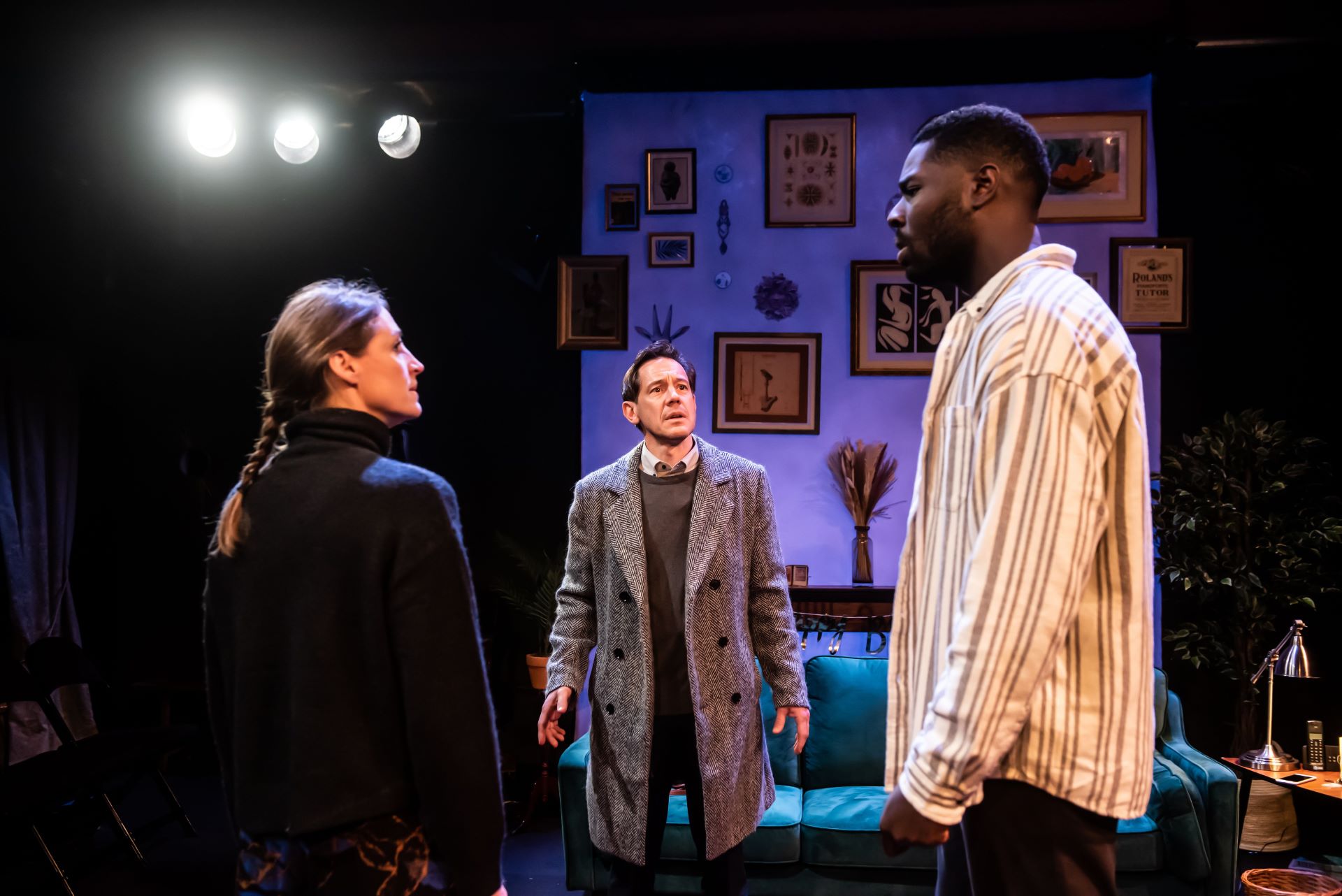Carey Crim’s 2017 play arrives from the US at north London's Park Theatre trailing a feminist playwriting award for its dissection of what happens when a smart college senior raised by two women starts to question her parentage. Eleanor wants to know who her biological father was and to this end has employed a private investigator. Her mother Allison is aghast. What will Eleanor do if what she unearths about her father is not what she hopes for, and indeed is abhorrent to her?
Cracks begin to appear almost immediately in (Caucasian) Allison’s relationship with her long-term partner Nadine, an African-American aeronautical engineer, and the stability of this three-women family group seems endangered. We learn that Allison has never told Nadine the name of the man who fathered her child and has never wanted her to legally adopt Eleanor, even though Nadine has co-parented Eleanor for more than 20 years. Why?
Things start with a light touch as Allison (Flora Montgomery) and Nadine (Amanda Bright) show a sparky line in repartee to be a strand in their rapport. Then Eleanor (a pitch-perfect Meaghan Martin) arrives unexpectedly at their comfortable home with her college boyfriend Rob (here, a gentle giant of colour played winningly by Gilbert Kyem Jnr, pictured below, right, though the stage instructions specify he can be any ethnicity except Caucasian). Rob, we later learn, has been nicknamed Naked Man by the older women, after the fraternity he wanted to join left him to make his way home without any clothes as part of its initiation rite and Eleanor came to his rescue. Rob, who is strong yet gentle, protective yet smart and sensitive, represents the acceptable face of masculinity. And Eleanor’s father, everything that’s irredeemably negative and unacceptable.  As the older women grapple with the impact of Eleanor’s investigations, doubts develop about just how endangered their family is. Do we really believe the 20-year-plus bond between these three women is going to be broken? If we don’t, what’s at stake here? The script at one point tries to soften Allison’s fiercely feminist side a tad when Eleanor tells her that the "fairytale facts book" she gave her as a child, detailing the extreme misogyny of folk-tales, freaked her out. But Allison’s strength and rightness are never really in doubt.
As the older women grapple with the impact of Eleanor’s investigations, doubts develop about just how endangered their family is. Do we really believe the 20-year-plus bond between these three women is going to be broken? If we don’t, what’s at stake here? The script at one point tries to soften Allison’s fiercely feminist side a tad when Eleanor tells her that the "fairytale facts book" she gave her as a child, detailing the extreme misogyny of folk-tales, freaked her out. But Allison’s strength and rightness are never really in doubt.
Neither are Nadine’s, a similarly underdeveloped character given a hinterland with just a few broad brushstrokes. There are attempts to focus on her ethnicity when she and Rob discuss the fact that lesbianism was an abomination to the congregation in the South where her father was a preacher; and again when Nadine’s unhappiness about not being able to adopt Eleanor emerges – while taking Eleanor on outings as a child, she complains to Allison that people thought she was the nanny. Yet this potentially fruitful source of tension stays untroubled by deeper scrutiny. Eleanor has a non-Caucasian partner too, after all, so there would have been dramatic capital to be made by teasing out parallels between her relationship with Rob and the two older women’s experiences. The younger couple seem untouched by racial issues.
The religious upbringings of the older women and how these have affected their choices are also underexplored, even though Allison’s Catholicism, expediently referenced at a key moment but then not revisited, is an important plot point. It’s as if Crim is content to shortcircuit some of the issues her material raises instead of letting them play out unresolved, gathering weight as they go, until they cause serious damage. Ibsen she isn't. What concerns her is her main target: holding Eleanor's father to account. That could have made for a satisfying denouement, but here it seems like a weighted fate he can never escape, a fait accompli.
The director, Katharine Farmer, and her cast do their best, with Montgomery in particular investing as much three-dimensionality into Allison as she can. But by the final scene, 80 minutes in and still with no truly gripping dramatic conflict in sight, we are left with what feels like a consciousness-raising session on a theme pithily expressed by Nadine: that “the best in women is always asked to forgive the worst in men.” It’s an admirable sentiment but sadly not one Crim has forged into a substantial piece of drama.















Add comment